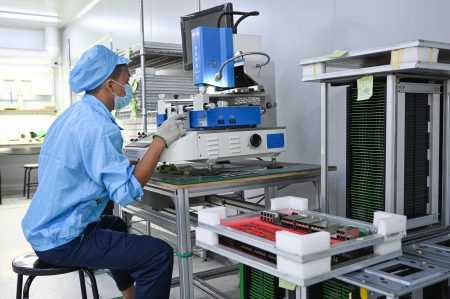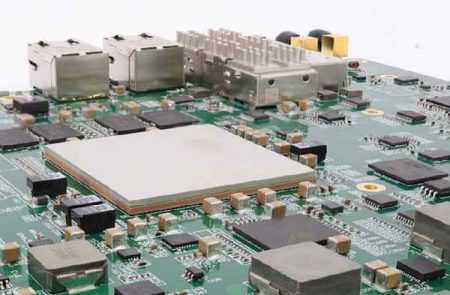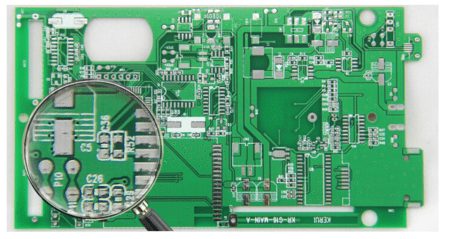- +86-755-23012705
- Building 3, Jinfeng Industrial Park, Fuyong Street, Baoan District, Shenzhen ,China
- [email protected]
As the calendar year draws to a close, the demand for PCB (Printed Circuit Board) and PCBA (Printed Circuit Board Assembly) services skyrockets, driven by the rush to meet consumer electronics needs during the holiday season. This is particularly true for SMT (Surface-Mount Technology) assembly, a key process in producing high-quality and efficient PCBs for everything from smartphones and laptops to medical devices and automotive electronics.
For PCB manufacturers in China, the year-end period represents both a challenge and an opportunity. On one hand, the surge in demand can lead to supply chain bottlenecks, production delays, and labor shortages. On the other hand, it offers a chance to showcase their capabilities by delivering high-quality, fast-turnaround products on tight deadlines. In this blog, we’ll explore how Chinese PCB manufacturers navigate the year-end rush by optimizing their PCBA and SMT processes, improving efficiency, and ensuring timely delivery.
The period leading up to the end of the year is one of the busiest for PCB manufacturers, especially those in China, which dominate the global PCB production landscape. The electronics industry, in particular, experiences a sharp increase in demand as companies ramp up production for holiday-season consumer goods like smartphones, wearables, smart home devices, gaming consoles, and automotive electronics. Manufacturers are under pressure to ensure that these devices meet the market’s needs by year-end, which means tighter timelines and more stringent quality expectations.
Additionally, as electronics become increasingly sophisticated, there’s a growing demand for advanced PCB designs, such as multi-layer boards, flexible PCBs, and high-frequency PCBs. This increases the complexity of the production and assembly processes, further intensifying the challenge for PCB manufacturers during the year-end rush.

The surge in demand for electronic devices before the holidays means PCB manufacturers in China face a dramatic increase in orders. Clients expect fast turnarounds, which places a lot of pressure on production timelines. The need to produce larger volumes in a shorter period means manufacturers must ramp up production capacity and adjust their workflows accordingly.
The challenge lies in balancing speed with quality. As lead times shorten, maintaining a consistent level of quality across all batches of PCBs and PCBA becomes more difficult. The pressure to deliver on time while avoiding defects is a key hurdle for manufacturers.
Supply chain disruptions, which have been prevalent in recent years, become particularly acute during the year-end rush. The increased demand for raw materials such as copper, resins, soldering materials, and components like chips and capacitors can lead to material shortages. Additionally, transportation delays—both domestically and internationally—can cause further delays in the procurement of necessary components.
Manufacturers must find ways to secure their supply chains and avoid disruptions during this critical period. Failure to manage supply chains effectively can result in production delays, missed deadlines, and lost business opportunities.
Labor shortages are another significant challenge during the year-end rush. Many workers in China take time off around the Chinese New Year, which typically occurs just after the busy season, leaving factories understaffed. Additionally, the need for overtime or extra shifts during the busy season increases labor costs.
The pressure to maintain high-quality production while managing increased operational costs can be a tough balancing act for PCB manufacturers, who must find ways to increase productivity without sacrificing quality.
With technological advancements, many electronics products require more advanced PCBs, such as HDI (High-Density Interconnect), rigid-flex, or multilayer PCBs. These complex designs require precision assembly processes and advanced testing methods. This increases the complexity of both the PCB manufacturing and the SMT (Surface-Mount Technology) assembly processes.
As the demand for miniaturization and more integrated solutions increases, manufacturers must be equipped to handle these complexities efficiently. The difficulty lies in ensuring the precision of SMT assembly processes, which involves placing components like resistors, capacitors, and integrated circuits onto PCBs. Errors in SMT can lead to defects in the final product, which, if undetected, could result in product failures for customers.

One of the most effective ways to handle increased demand during the year-end rush is through advanced production scheduling. Many PCB manufacturers in China rely on sophisticated ERP (Enterprise Resource Planning) systems and Advanced Planning and Scheduling (APS) tools to optimize production workflows. These tools help manufacturers allocate resources efficiently, prioritize orders, and reduce bottlenecks in the production process.
By having a clear view of demand, available capacity, and material availability, manufacturers can proactively adjust production schedules, minimize downtime, and ensure that high-priority orders are completed first.
To meet tight deadlines while maintaining high quality, Chinese PCB manufacturers are increasingly turning to automation and robotics in both PCB fabrication and SMT assembly processes. Automated systems help increase production speed and precision, allowing manufacturers to handle large volumes of orders with consistent quality.
In SMT assembly, for example, pick-and-place machines can automatically place thousands of tiny components onto PCBs with pinpoint accuracy, which drastically reduces human error. Automated Optical Inspection (AOI) machines are used for inspecting solder joints, component placements, and other potential defects in real-time, ensuring that products meet quality standards before they move to the next production stage.
The use of robotic arms and AI-driven technologies is also becoming common in tasks like material handling, quality inspection, and assembly. These automated systems help manufacturers scale up production while maintaining the speed and accuracy required during the peak season.
To combat supply chain disruptions and component shortages, PCB manufacturers in China often build strong, long-term relationships with trusted suppliers. Many manufacturers secure materials in advance, placing orders early and maintaining strategic stockpiles of critical components like substrates, chips, and connectors.
Some manufacturers even develop diversified supply chains, sourcing materials from multiple suppliers to mitigate the risk of shortages from any single supplier. Furthermore, local sourcing and on-site inventory management help reduce delays caused by transportation bottlenecks.
Quality control is paramount during the year-end rush, when even a small defect can lead to significant consequences, including delayed shipments or product recalls. To maintain high-quality standards, Chinese PCB manufacturers implement multiple layers of quality control throughout the production process.
This includes using Automated Optical Inspection (AOI) systems for real-time inspection of the SMT process and X-ray inspection for more in-depth checks of hidden solder joints or multi-layer PCBs. Additionally, functional testing of the finished product ensures that each PCBA performs as expected, even under harsh conditions.

The year-end rush presents unique challenges for PCB manufacturers in China, especially in terms of meeting the increased demand for high-quality PCBs and PCBA services. The key to success lies in efficiency—both in terms of production processes and supply chain management. By leveraging advanced technologies, automating production, optimizing supply chains, and maintaining stringent quality control, Chinese PCB manufacturers can meet the surge in demand while ensuring that their products are delivered on time and to the highest standards.
As demand for consumer electronics continues to grow, especially during the peak holiday season, PCBA and SMT services will remain critical in the electronics manufacturing ecosystem. Chinese PCB manufacturers that can effectively navigate these challenges and optimize their operations will be well-positioned to succeed in an increasingly competitive global market.
Simplify Your PCB Journey with XPCB Limited
XPCB Limited simplifies the PCB process for you. With our quick-turnaround prototyping and turnkey PCBA services, we ensure that your projects move forward smoothly and efficiently. Trust our commitment to quality and timeliness as we help you bring your designs to life. Choose XPCB Limited for a hassle-free PCB experience.






XPCB Limited is a premium PCB & PCBA manufacturer based in China.
We specialize in multilayer flexible circuits, rigid-flex PCB, HDI PCB, and Rogers PCB.
Quick-turn PCB prototyping is our specialty. Demanding project is our advantage.
Tel : +86-136-3163-3671
Fax : +86-755-2301 2705
Email : [email protected]
© 2024 - XPCB Limited All Right Reserve
